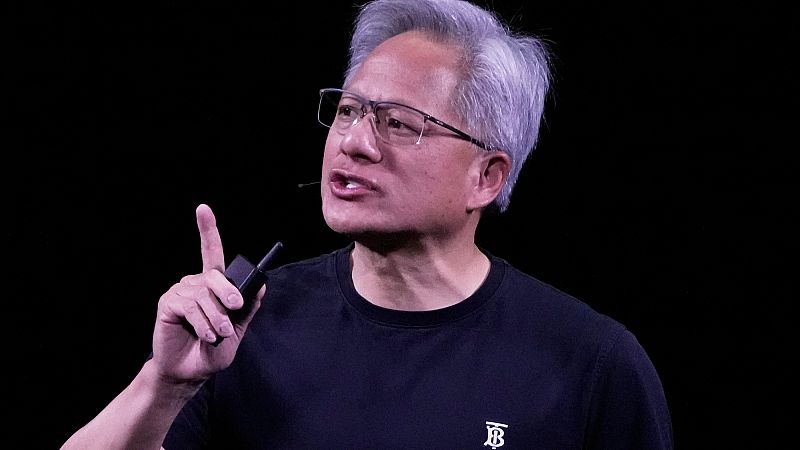
NVIDIA CEO Jensen Huang said China doesn’t need his company’s semiconductor chips to boost its military power.
China “simply can’t rely” on American technologies because “it can be limited at any time,” Huang said in an interview with CNN.
There’s “plenty of computing power in China already,” he said, adding that the country has developed hundreds of supercomputers that train artificial intelligence (AI) models for the military.
In response to a question about winning the global AI race, Huang said he believes it doesn’t matter whether the AI chatbot everyone uses is Chinese or American.
“The question of does it really matter, no; but in a final analysis, I believe it is core to the American spirit to want to be the world’s best in computing technology,” he said.
US President Donald Trump has threatened global tariffs on allies and competitors, in which he says is a bid to boost the American economy.
Huang called Trump’s actions “not a goal, it’s a tactic,” which goes against getting companies around the world, including in China, to be reliant on the American tech stack, a combination of programming languages, frameworks and databases used to build any software application.
Huang compared blocking China’s access to the US tech stack to the recent Chinese ban on rare earth mineral exports to the US, in that it spurred America to develop their own solutions instead. (These minerals are used to manufacture computer chips like NVIDIA’s).
So far, the Trump administration has exempted foreign-made semiconductor products from its Liberation Day tariffs, but the President has threatened to impose levies against them several times.
China now has a 30 per cent tariff rate across all its goods, a significantly smaller tariff than the initial 125 per cent that was proposed by the Trump administration earlier this year.
NVIDIA was the first company to reach $4 trillion (€ 3.42 trillion) valuation last week because of its semiconductor chips that are supporting the AI industry.







